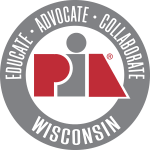Emergency Order #12 Safer at Home Order
Wisconsin Governor Tony Evers has issued a “shelter-in-place” order, calling on all citizens to stay home in order to slow the spread of the COVID-19 coronavirus. Wisconsinites can leave home to get groceries, medicine, and other essential supplies. We can leave our homes to exercise outdoors, as long as we practice social distancing and stay at least six feet away from all other persons. We can also leave home to participate in “essential businesses,” one of which is insurance. This means that employees of your agency can come to work, although they should work remotely from home, if possible. All business that can be conducted electronically, should be. In cases where employees and/or customers do come together, social distancing should be practiced.

Businesses that are not on the list of “Essential Businesses,” will have to cease all operations other than minimum basic operations (payroll, property maintenance, etc.) Many of your commercial-lines clients will fall into this category and be required to close their doors. For their employees who cannot work because of COVID-19, and for your employees as well, there is the option of paid leave, reimbursed by the federal government. The Families First Coronavirus Response Act, signed into law last week, provides for 10 days’ worth of sick leave at full pay, plus an additional 10 weeks of leave under an expanded Family and Medical Leave Act. That additional 10 weeks of leave must be paid at 2/3 of the employee’s normal rate of pay (to a maximum of $200/day).
Employers under with less than 500 employees are required to allow employees leave time under this law, and can be reimbursed by the federal government for the sick leave and FMLA leave provided to employees to deal with COVID-19. The tax credits are available to employers when they file their quarterly Form 941 Series payroll tax returns. Basically, the amount you spend to pay leave to employees will be deducted from the federal income tax and Social Security withholdings you pay to the government on behalf of employees.
See IRS guidelines on FFCRA leave and tax credits
Feel free to reach out to PIAW with questions. Most of our operations will continue, although much of our staff will be working remotely from their homes.
